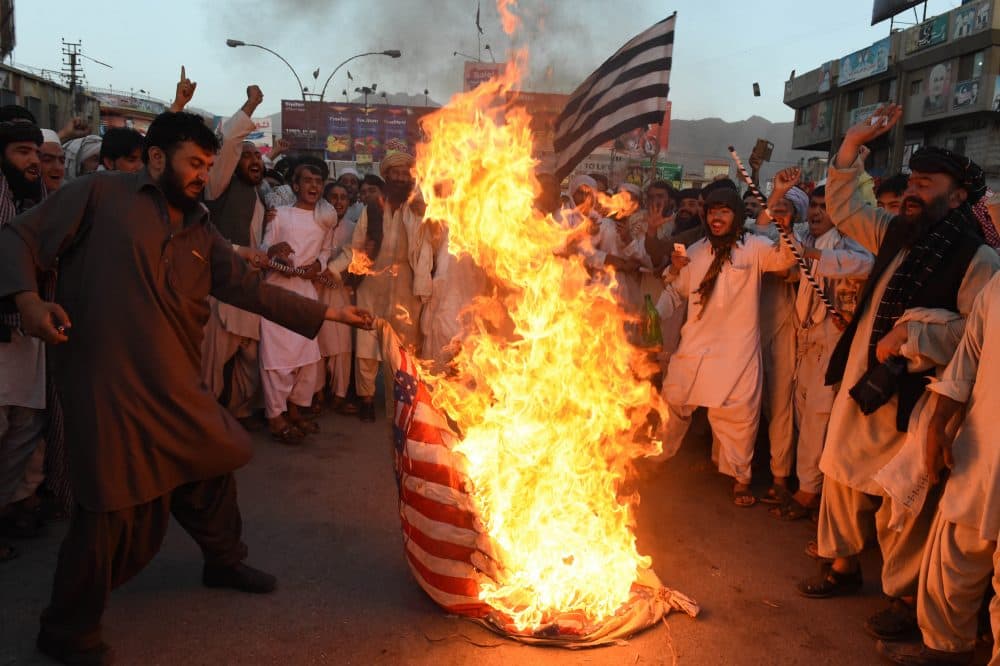Advertisement
Officials: American Mission In Afghanistan Will Expand
Resume
The White House is giving military commanders expanded authority to conduct air strikes against the Taliban. As part of the authority, U.S. troops already on the ground in Afghanistan would help to coordinate the air strikes. The decision comes as Afghan forces struggle against a resurgent Taliban and President Obama tries to end the war and pull out American troops. We speak with NPR's national security editor Phil Ewing about the military and political implications of this decision.
Guest
Phil Ewing, NPR's national security editor. He tweets @philewing.
This segment aired on June 10, 2016.